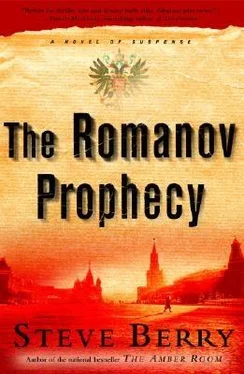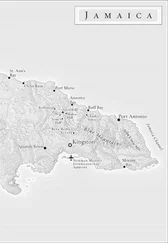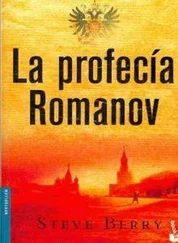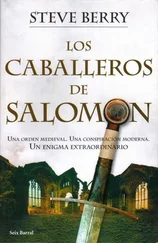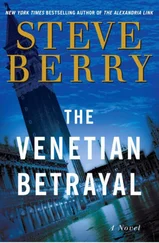Steve Berry - The Romanov Prophecy
Здесь есть возможность читать онлайн «Steve Berry - The Romanov Prophecy» весь текст электронной книги совершенно бесплатно (целиком полную версию без сокращений). В некоторых случаях можно слушать аудио, скачать через торрент в формате fb2 и присутствует краткое содержание. Жанр: Триллер, на английском языке. Описание произведения, (предисловие) а так же отзывы посетителей доступны на портале библиотеки ЛибКат.
- Название:The Romanov Prophecy
- Автор:
- Жанр:
- Год:неизвестен
- ISBN:нет данных
- Рейтинг книги:4 / 5. Голосов: 1
-
Избранное:Добавить в избранное
- Отзывы:
-
Ваша оценка:
- 80
- 1
- 2
- 3
- 4
- 5
The Romanov Prophecy: краткое содержание, описание и аннотация
Предлагаем к чтению аннотацию, описание, краткое содержание или предисловие (зависит от того, что написал сам автор книги «The Romanov Prophecy»). Если вы не нашли необходимую информацию о книге — напишите в комментариях, мы постараемся отыскать её.
The Romanov Prophecy — читать онлайн бесплатно полную книгу (весь текст) целиком
Ниже представлен текст книги, разбитый по страницам. Система сохранения места последней прочитанной страницы, позволяет с удобством читать онлайн бесплатно книгу «The Romanov Prophecy», без необходимости каждый раз заново искать на чём Вы остановились. Поставьте закладку, и сможете в любой момент перейти на страницу, на которой закончили чтение.
Интервал:
Закладка:
He finished the article, marveling at the Russian penchant for public shows. They even had coined a name for such spectacles: pokazukha. The best example he could recall was when Gerald Ford visited in the 1970s, his route from the airport made more picturesque by the fir trees that had been cut from a nearby forest and stuck upright in the snow.
The waiter brought his steaming blinys and coffee. He thumbed through the rest of the paper, glancing at stories here and there. One in particular caught his eye. ANASTASIA ALIVE AND LIVING WITH HER BROTHER THE TSAR. Shock slid down his spine until he read further and noted the article was a review of a play that had recently opened in Moscow:
Inspired by a cheesy conspiracy book found in a secondhand store, English playwright Lorna Gant became intrigued by stories surrounding the alleged incomplete execution of the royal family. "I was fascinated with the Anastasia/Anna Anderson thing," Gant said, referring to the most famous Anastasia wannabe.
The play suggests that Anastasia and her brother Alexie managed to escape death at Yekaterinburg in 1918. Their bodies have never been found and speculation has abounded for decades over what really happened. All fertile grist for the playwright's imagination.
"It has an Elvis-is-alive-and-living-in-Alaska-with-Marilyn ring to it," Gant says. "There's a dark humor and irony to the message."
He read on and saw that the play seemed more a farce of the idea than a serious rendition on possible Romanov survivors, the reviewer comparing it to "Chekhov meets Carol Burnett." In the end the reviewer recommended no one bother with the performance.
A chair sliding from the table interrupted his reading.
He glanced up from the paper as Feliks Orleg sat down.
"Your breakfast looks good," the inspector said.
"I'd order you some, but this is a bit too public a place for you." He made no attempt to hide his contempt.
Orleg slid the plate close and reached for the fork. Hayes decided to leave the bastard alone. Orleg draped syrup over the thin pancakes and eagerly devoured them.
He folded and tabled the newspaper. "Some coffee?" he asked, his sarcasm clear.
"Juice would be fine," the Russian muttered through a full mouth.
He hesitated, then signaled the waiter and told him to bring a tumbler of orange juice. Orleg finished the blinys and wiped his mouth with a cloth napkin. "I've heard this hotel prepares a fine breakfast, but I can hardly afford an appetizer."
"Luckily you might soon come into some wealth."
A smile creased the inspector's chapped lips. "I'm not doing this for the pleasure of the company, I assure you."
"And the purpose of this lovely Sunday-morning visit?"
"The police bulletin on Lord worked. He has been located."
His interest was piqued.
"In Starodug. About five hours south."
He instantly recalled the town from the materials Lord had found in the archives. Lenin mentioned it along with a name: Kolya Maks. What had the Soviet leader said? The village of Starodug has likewise been noted by two other similarly persuaded White Guardsmen. There is something occurring, of that I am now certain.
Now, so was he. Too many coincidences.
Lord had obviously gotten himself into something.
Sometime during Friday night, Lord's room had been mysteriously emptied. Members of the Secret Chancellory were clearly upset, and if they were worried, he was worried. They'd told him to handle the situation, and he intended to do just that.
"What happened?" he asked.
"Lord and a woman were found at a hotel."
He waited for more. Orleg was apparently enjoying the moment.
"What the local militsya lack in knowledge, they make up for in stupidity. They raided the hotel, but neglected to cover the rear. Lord and the woman escaped through a window. They tried to shoot him, but he managed to get away."
"Did they learn why he was there?"
"He was asking questions in a local eatery about a Kolya Maks."
Confirmation. "What orders did you give the locals?"
"I told them to do nothing until they hear from me."
"We need to leave immediately."
"I thought as much. That's why I'm here. And I've even had my breakfast now."
The waiter brought the orange juice.
Hayes stood from the table. "Drink up. I have to make a call before we go."
TWENTY-SIX
STARODUG, 10:00 AM
Akilina watched as Lord slowed the car. A cold rain smacked the windshield. Last night, Iosif Maks had stashed them in a house west of Starodug. It was owned by another Maks family member who'd provided two pallets before an open hearth.
Maks had returned a couple of hours ago and explained that the police had come to his house late last night inquiring about a black man and Russian woman who'd visited his eatery earlier. He'd told them exactly what had happened, most of which was witnessed by the militsya officer. They apparently believed what he said, since they had not returned. Thankfully, no one witnessed the escape from the Okatyabrsky.
Maks also left them a vehicle, a banged-up, cream-colored Mercedes coupe caked in black mud, its leather seats brittle from exposure. And he provided directions to where the son of Kolya Maks lived.
The farmhouse was single-story and built of double planks caulked with a thick layer of oakum, the roof's bark shingles darkened by mildew. A stone chimney puffed a thick column of gray vapor into the cold air. An open field spread in the distance, plows and harrows stored under a lean-to.
The entire scene reminded Akilina of the cabin her grandmother had once occupied, a similar grove of white birch rising to one side. She'd always thought autumn such a sad time of year. The season arrived without warning, then evaporated overnight into winter. Its presence meant the end of green forests and grassy meadows-more reminders of her childhood, the village near the Urals where she was raised, and the school where they all wore matching dresses with pinafores and red ribbons. Between lessons they'd been drilled about the oppression workers suffered during tsarist times, how Lenin had changed all that, why capitalism was evil, and what the collective expected from each of its members. Lenin's portrait had hung in every classroom, in every home. Any challenge to him was wrong. Comfort was derived in knowing that ideas were shared by everyone.
The individual did not exist.
But her father had been an individual.
All he'd wanted was to live with his new wife and child in Romania. But the kollektiv would not allow such a simple thing. Good parents were expected to be party members. They had to be. Those who did not possess "revolutionary ideals" should be reported. One famous story was of a son who informed on his father for selling documents to rebellious farmers. The son testified against the father and was later murdered by the farmers. Songs and poems were subsequently written about him, and all children were taught to idealize such dedication to the Motherland.
But why?
What was admirable about being a traitor to your own family?
"I've only been into rural Russia twice," Lord said, interrupting her thoughts. "Both under controlled circumstances. But this is quite different. It's another world."
"In tsarist times they called the village mir. Peace. A good description since few ever left their village. It was their world. A place for peace."
Outside, the factory smog of Starodug was gone, replaced with verdant trees, green hills, and hay fields that she imagined in summer were alive with meadowlarks.
Lord parked the car in front of the cabin.
The man who answered the door was short and sturdy with reddish brown hair and a face round and flush like a beet. He was, Akilina estimated, close to seventy, but moved with surprising agility. He studied them with scrutinizing eyes that she thought akin to those of a border guard, then invited them inside.
Читать дальшеИнтервал:
Закладка:
Похожие книги на «The Romanov Prophecy»
Представляем Вашему вниманию похожие книги на «The Romanov Prophecy» списком для выбора. Мы отобрали схожую по названию и смыслу литературу в надежде предоставить читателям больше вариантов отыскать новые, интересные, ещё непрочитанные произведения.
Обсуждение, отзывы о книге «The Romanov Prophecy» и просто собственные мнения читателей. Оставьте ваши комментарии, напишите, что Вы думаете о произведении, его смысле или главных героях. Укажите что конкретно понравилось, а что нет, и почему Вы так считаете.
